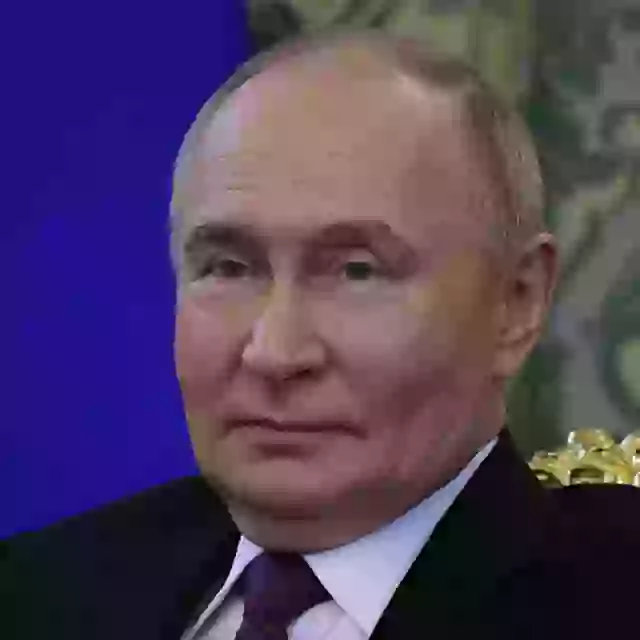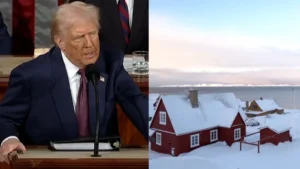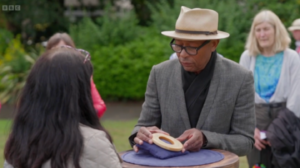In a chilling assessment of the geopolitical landscape, former CIA Director David Petraeus has issued a stark warning to the West: if Vladimir Putin emerges victorious or even partially successful in Ukraine, his territorial ambitions are unlikely to end there. According to Petraeus, Europe’s eastern frontier—including Moldova and the Baltic states—could be Putin’s next focus, with the potential to test NATO’s unity and the West’s resolve.
A Broader Strategy Behind the War in Ukraine
Petraeus, who served as CIA Director from 2011 to 2012 and previously commanded U.S. forces in Iraq and Afghanistan, argues that Putin’s campaign in Ukraine is part of a larger revanchist vision to restore Russia’s influence over former Soviet territories. Speaking at a recent security forum, he cautioned, “Putin has shown again and again that he views the fall of the Soviet Union as a geopolitical catastrophe. Ukraine is just one piece of a larger puzzle.”
What makes Petraeus’s warning particularly alarming is his suggestion that Russia has already begun laying the groundwork for future moves—not just militarily, but politically and economically as well. These preparations, he says, could set the stage for further confrontations in Eastern Europe.
Moldova: A Strategic and Fragile Target
Among the countries Petraeus highlighted, Moldova stands out as a vulnerable and strategically significant target. Sandwiched between Ukraine and Romania, Moldova has long struggled with Russian influence, particularly in its breakaway region of Transnistria. The unrecognized republic is home to a contingent of Russian troops and serves as a potent symbol of Moscow’s lingering reach.
“Moldova lacks NATO protection, has internal political divisions, and borders a country under active Russian attack,” Petraeus noted. “If Putin wishes to show strength or cause further instability in the region, Moldova offers a low-risk, high-impact target.”
Tensions in Moldova have been rising, with pro-European President Maia Sandu walking a diplomatic tightrope between aligning with the EU and managing the threat from Transnistria. A successful Russian incursion or subversion campaign in Moldova could destabilize the entire southeastern flank of Europe.
The Baltic States: A Test of NATO’s Will
Petraeus’s warning does not stop at non-NATO countries. He also raised concerns about the Baltics—Estonia, Latvia, and Lithuania—all NATO members and long-standing critics of Moscow. These nations, once part of the Soviet Union, are considered by the Kremlin to lie within its historic “sphere of influence.”
“If Russia senses weakness or disunity within NATO, it may seek to exploit it by applying pressure on the Baltic states,” Petraeus explained. “Whether through cyberattacks, disinformation, or even border provocations, Putin could probe NATO’s Article 5 commitment.”
Lithuania, in particular, has drawn ire from the Kremlin due to its strong military support for Ukraine and its strategic location bordering the Russian exclave of Kaliningrad. Last year’s sanctions dispute over goods traveling between mainland Russia and Kaliningrad via Lithuania sparked threats of retaliation from Moscow.
Hybrid Warfare: The Likely Approach
Rather than a full-scale invasion, Petraeus warned that future Russian actions are likely to take the form of “hybrid warfare”—a blend of military intimidation, cyber warfare, propaganda, and political destabilization.
“Putin understands that conventional warfare against NATO is dangerous,” he said. “But he doesn’t need tanks to sow chaos. He can use energy supplies, mercenaries, propaganda, and digital tools to disrupt and divide.”
This strategy was seen in Ukraine before the 2014 annexation of Crimea, where pro-Russian sentiment was amplified by misinformation campaigns and covert military operations. Petraeus believes similar tactics are being rehearsed elsewhere.
NATO’s Balancing Act
NATO leaders have taken Petraeus’s warning seriously, as evidenced by increased deployments of troops and missile defenses in Eastern Europe. Yet many analysts believe the alliance faces a delicate balancing act: deterring Russian aggression without provoking it further.
The Baltic states have welcomed more permanent NATO presence, particularly after Finland and Sweden’s accession to the alliance in 2024, which has shifted the regional balance. Still, the vulnerability of countries like Moldova, which lies outside NATO protection, remains a strategic blind spot.
Ursula von der Leyen, President of the European Commission, acknowledged this gap in recent remarks: “Europe must recognize that our security does not end at the borders of NATO. We must invest in the resilience of our neighbors.”
Energy and Economics as Tools of Coercion
Beyond military action, Petraeus emphasized the role of energy and economic leverage. Even after losing significant European market share due to sanctions, Russia continues to exert influence over several countries through energy dependency and trade.
Countries like Hungary and Slovakia remain hesitant to cut ties with Russia completely, a hesitation Putin can exploit. Moldova, too, has been dependent on Russian gas, although it has taken steps to diversify its energy sources.
“Economic warfare is a central pillar of Putin’s strategy,” Petraeus explained. “He’s not just playing a military game; he’s playing a long-term geopolitical chess match.”
What the West Must Do
Petraeus concluded his remarks with a set of recommendations aimed at preventing future aggression:
-
Support Ukraine to victory: A weakened or divided Ukraine emboldens Russia.
-
Strengthen NATO’s eastern flank: Continued investment in defense infrastructure and troop presence is essential.
-
Protect non-NATO partners: Moldova, Georgia, and others need financial, diplomatic, and security support.
-
Combat disinformation: Western governments must build resilience against hybrid threats and propaganda.
-
Maintain unity: Perhaps most critically, Petraeus underscored the importance of unity among NATO and EU nations.
“The key lesson of the last decade is that Putin exploits weakness and division,” he warned. “Our best defense is not just tanks and missiles—it’s political will, cohesion, and a clear commitment to defend the values we share.”











